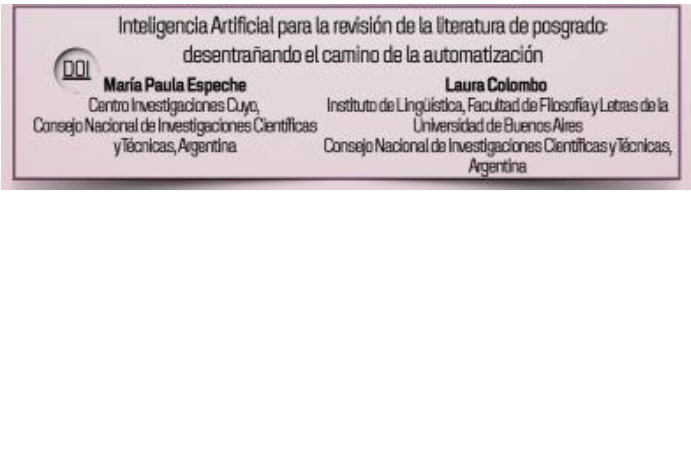Artificial Intelligence for Postgraduate Literature Review: Unraveling the Path to Automation
DOI:
https://doi.org/10.19137/praxiseducativa-2025-290206Abstract
Exploring previous research is a fundamental step in any research project. Accessing the body of existing knowledge on certain topics helps to define the originality and relevance of one's own research by establishing relationships with what has already been done. The search for bibliographic material, commonly referred to as “conducting a literature review”, can be a complex task, especially for novice researchers. There are tools that can help in this task and, among them, those mediated by artificial intelligence (AI) have been gaining prominence, mainly because they promise to perform the review of previous work more easily and quickly, sometimes even promising that the tool will perform the task autonomously. This paper analyzes three AI-mediated tools that can facilitate the literature review process and discusses the possible pros and cons associated with their use. On the one hand, we hope to highlight the relationship between certain uses of AI-mediated tools and academic literacy practices. On the other hand, we want to encourage critical views on the inclusion or omission of these tools in research and teaching related practices.
Downloads

Published
Issue
Section
License
Copyright (c) 2025 María Paula Espeche

This work is licensed under a Creative Commons Attribution-NonCommercial-ShareAlike 4.0 International License.
Copyright Notice
Editorial Committee Educational Praxis Magazine:
I hereby declare that I am the author of the article titled (article name), that it is original and my own and that it was not previously published in any other format or medium. I declare to know that the magazine will not charge me any type of fee under any circumstances, nor will I receive any type of monetary compensation If it were accepted for publication in Educational Praxis, I authorize the aforementioned magazine to publish it digitally and to advertise it on its social networks.
If the work is published, I adhere to the Creative Commons license called "Attribution - Non-Commercial Share Alike CC BY-NC-SA", through which it is allowed to copy, reproduce, distribute, publicly communicate the work and generate derivative works, as long as when the original author is cited and acknowledged. This license has been used since September 2018. In 2016 CC BY NC ND 4.0 was adhered to; and in the years 2017 and 2018 (January-August) CC BY NC 4.0.
This CC BY-NC-SA Share Alike license does not, however, permit commercial use of the work. As an author, the journal may establish additional agreements for the non-exclusive distribution of the version of the work published in the journal, it allows me to self-archive the published articles, in their post-print version, in institutional, thematic repositories, personal web pages or any other relevant use. with the recognition of having been first published in this journal.
Educational Praxis adheres to DORA (Declaration on Research Assessment) signed in San Francisco, California, on December 16, 2012, and to the Declaration of Mexico (Joint Declaration LATINDEX - REDALYC - CLACSO - IBICT).














_(1)2.png)


3.png)











_(2).png)






2.jpg)









